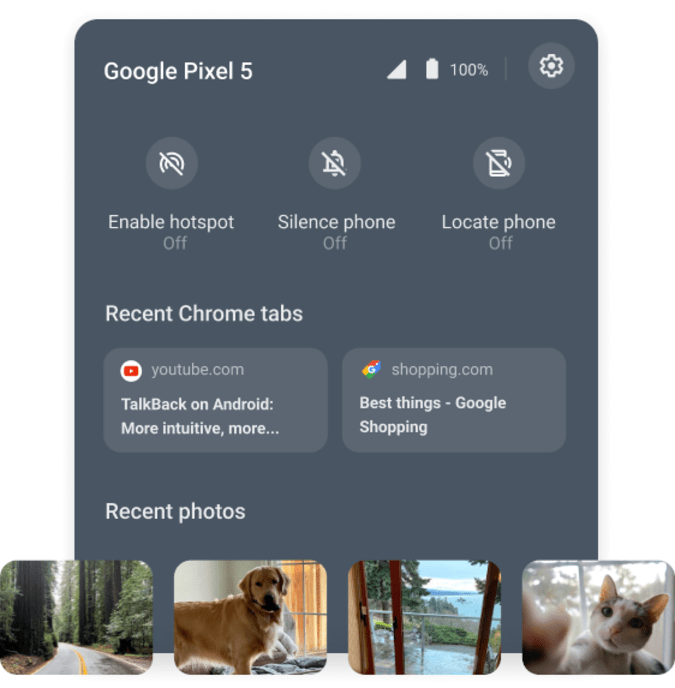
Google is rolling out Chrome OS version 103, which includes features that will make it easier for users to share things between Chromebooks and Android devices. For one thing, as the company announced at CES, Phone Hub is getting an upgrade. From your Chromebook, you’ll instantly be able to access the latest photos you took with your phone, even when you’re offline.
When you take a picture with your phone, it will automatically show up in the Recent Photos section of Phone Hub (which allows you to control some of your mobile device’s features from your laptop). You’ll need to click on the image to download it, though it’s a more elegant option than going to the Google Photos website or emailing yourself a photo.

Also new is a way to get a Chromebook connected to the internet more quickly. If you’re trying to link your laptop to a WiFi network that’s already saved on your Android phone, you can use Nearby Share. Go to the WiFi network tab in the internet settings on your phone. After you select the Share option, you can tap the Nearby button and choose the Chromebook you want to get online. The Chromebook should then automatically gain access to the internet and save the login credentials.
In addition, Google revealed the Chrome OS Screencast app it announced earlier this month will start rolling out this week. You can use that to record, trim and transcribe video.
Later this summer, Chromebooks will gain fast pairing support for hundreds of Bluetooth headphone models including, of course, Pixel Buds. Fast Pair will save the headphones to your Google account, so both your Chromebook and Android phone can connect to them swiftly.
Google said it will roll out more features to make Chromebooks and Android devices play more nicely with each other later this year. The company is looking to take a page out of Apple’s playbook with updates like these. Apple has long offered deep integration between its devices, including features such as WiFi password sharing and iCloud photo syncing, which helps it get people more invested in its ecosystem.
Author: K. Holt
Source: Engadget



